Year 3 Measurement Worksheets
Adding and Subtracting Metres and Centimetres
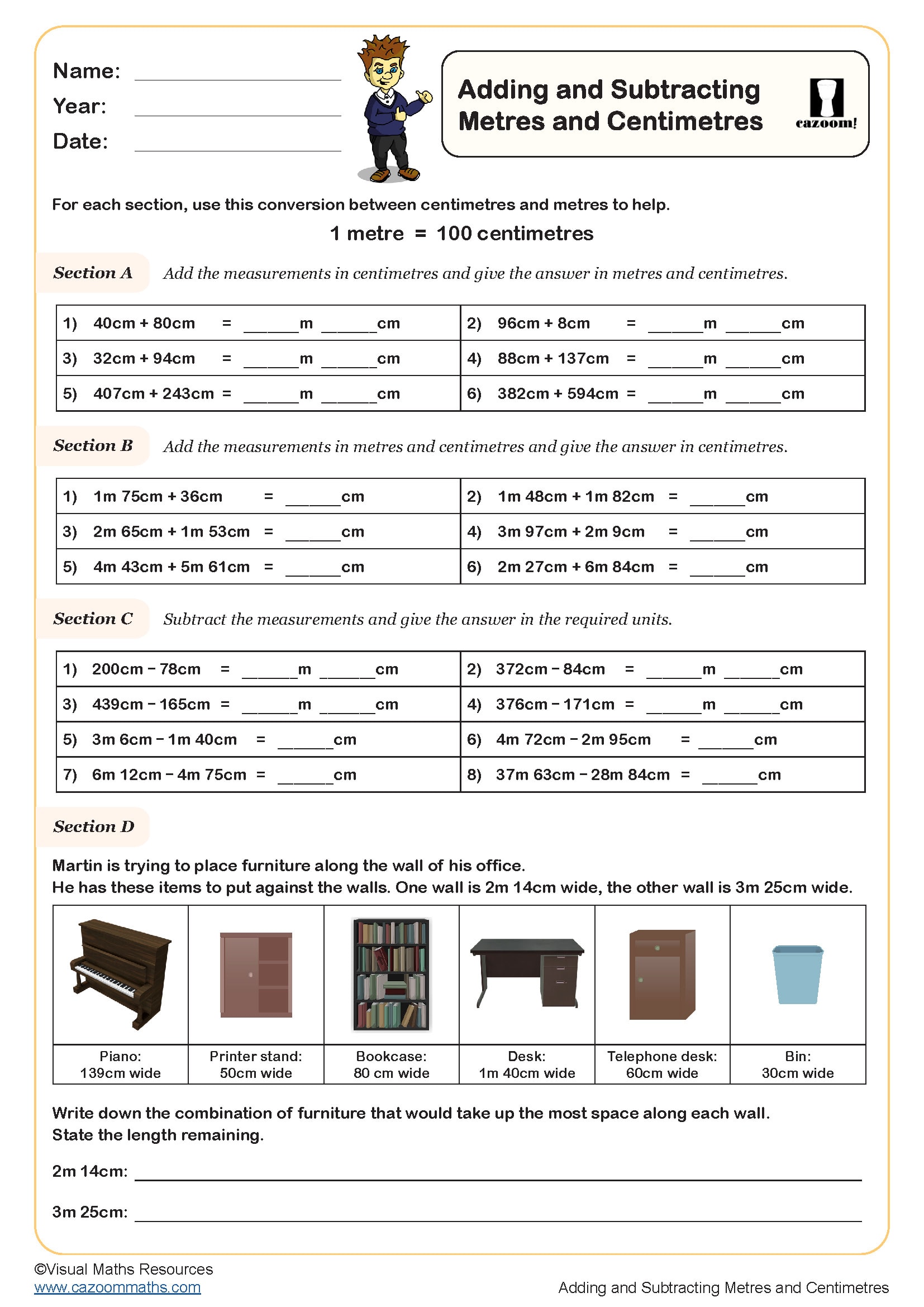
Adding Money in Pounds and Pence
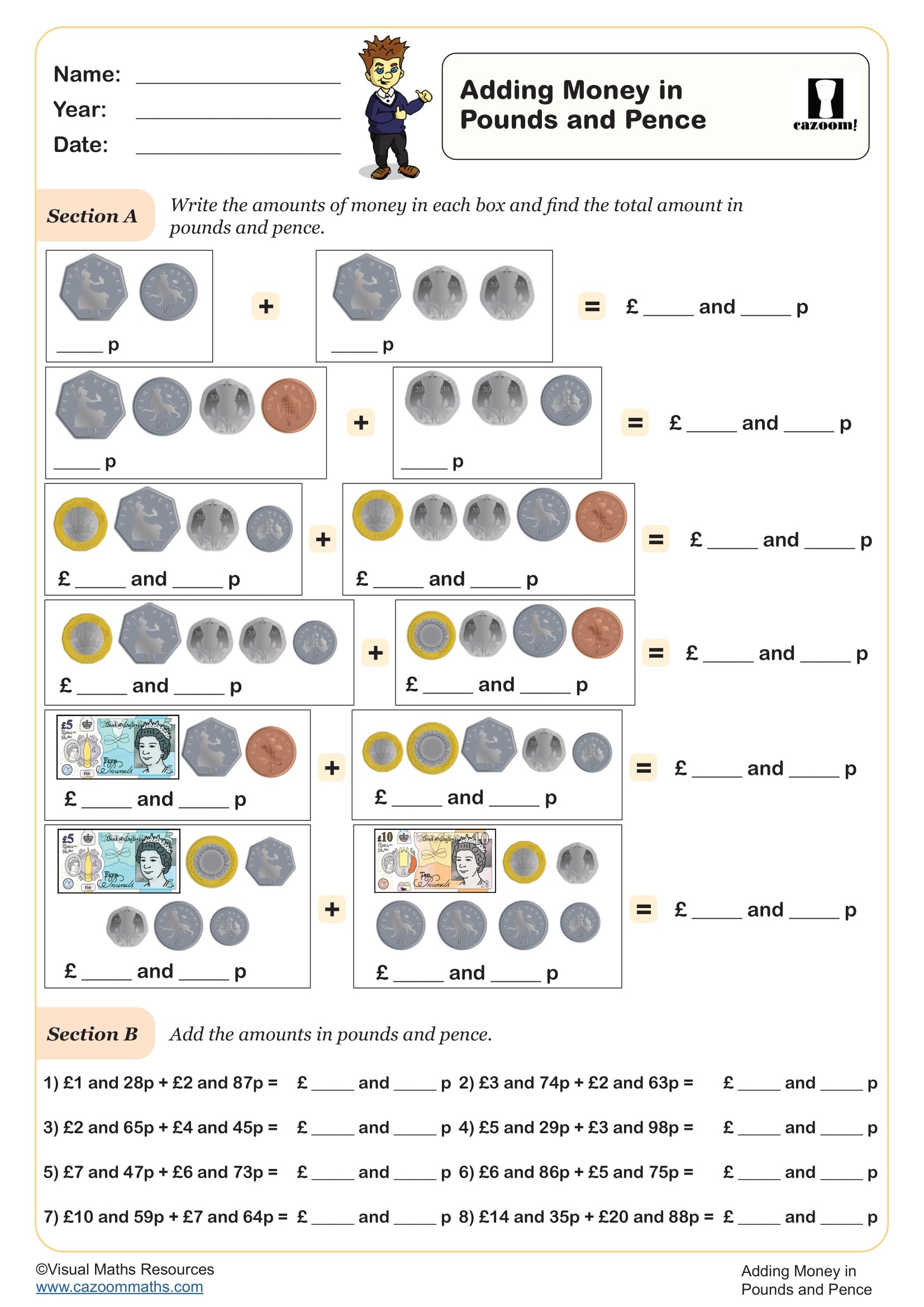
Converting Lengths - Centimetres and Millimetres
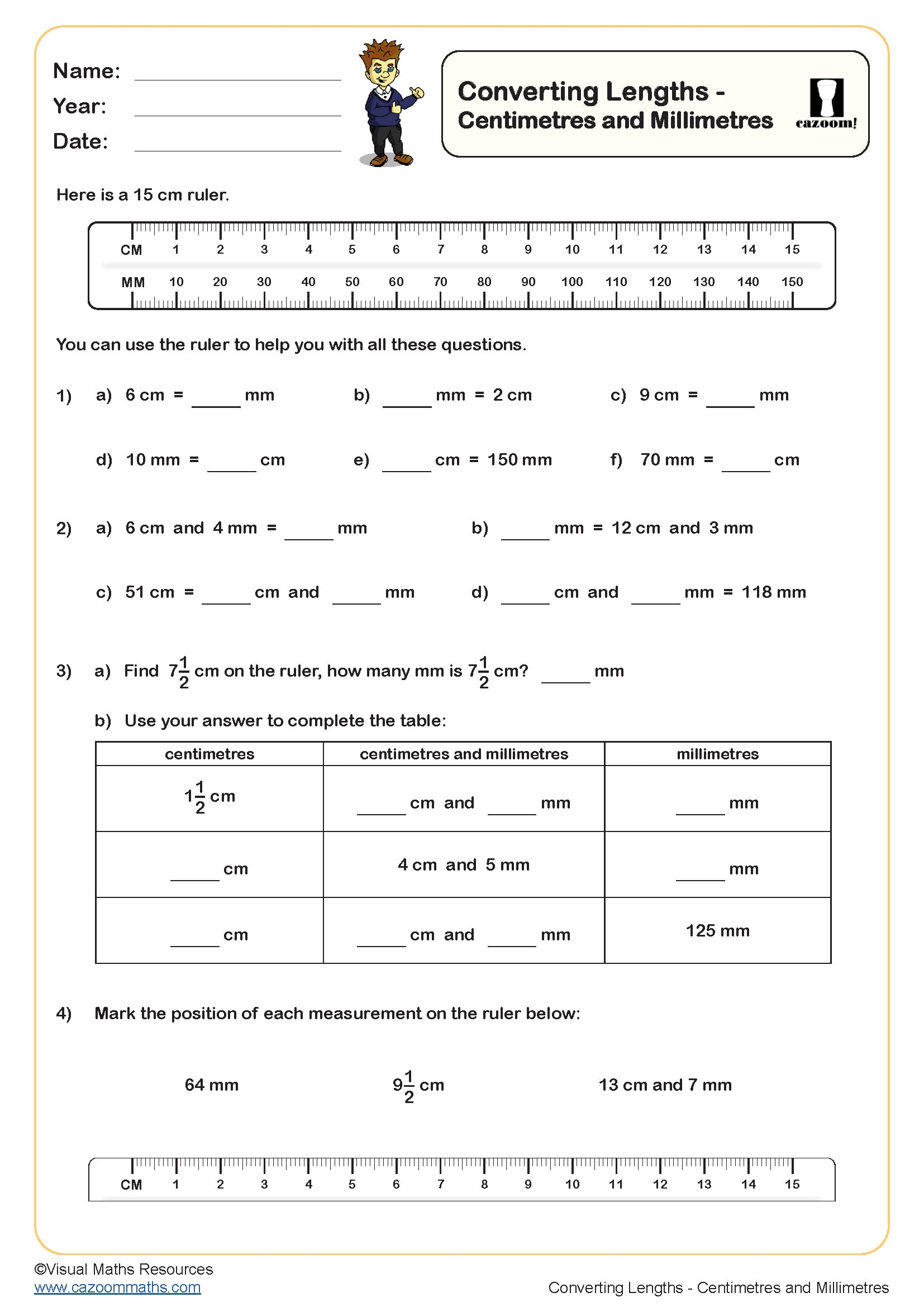
Converting Lengths - Metres and Centimetres
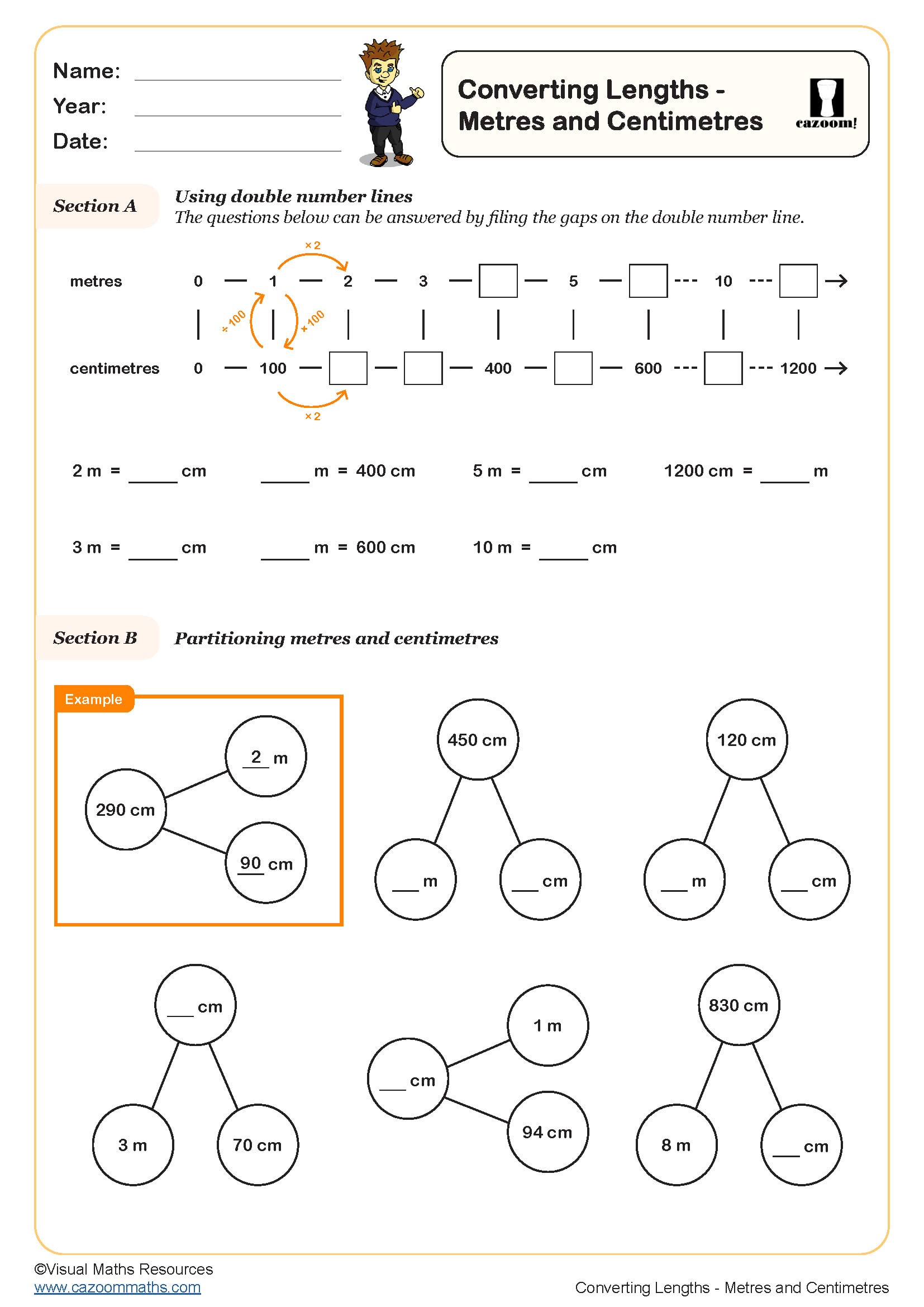
Estimating With Suitable Metric Measures
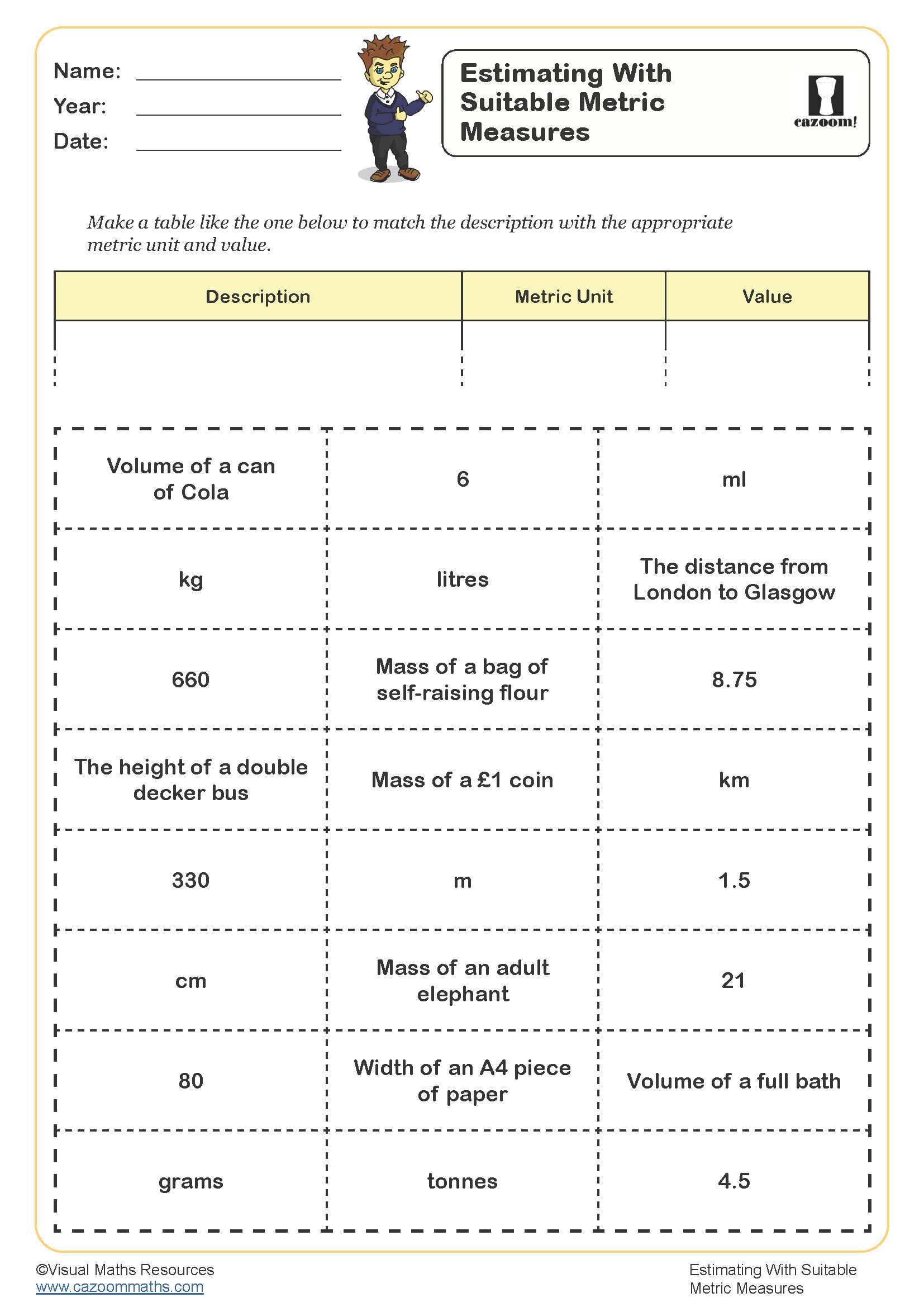
Giving Change in Pounds and Pence

Making 1 kg
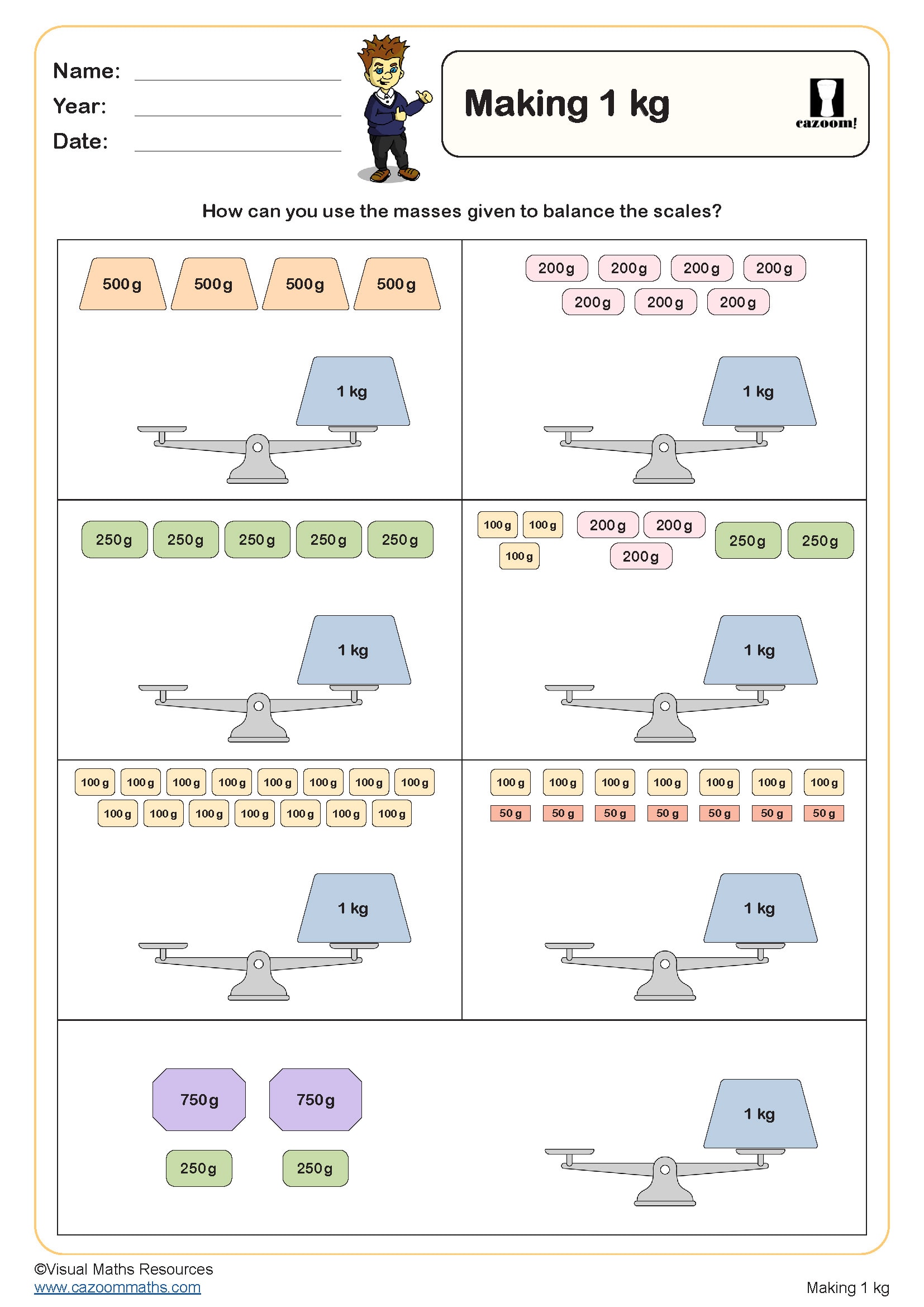
Making 1 L
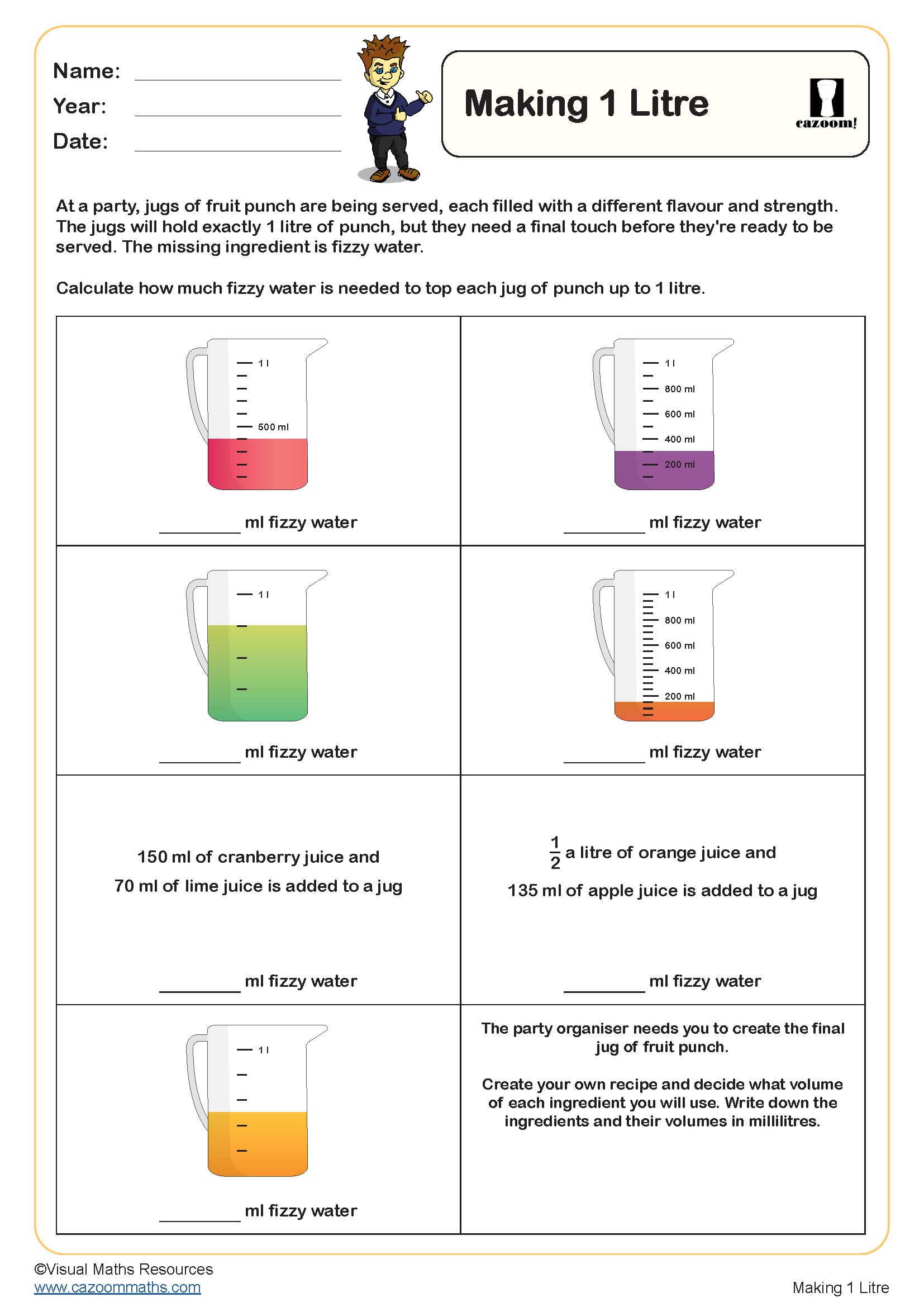
Measure Mass - in Grams (B)
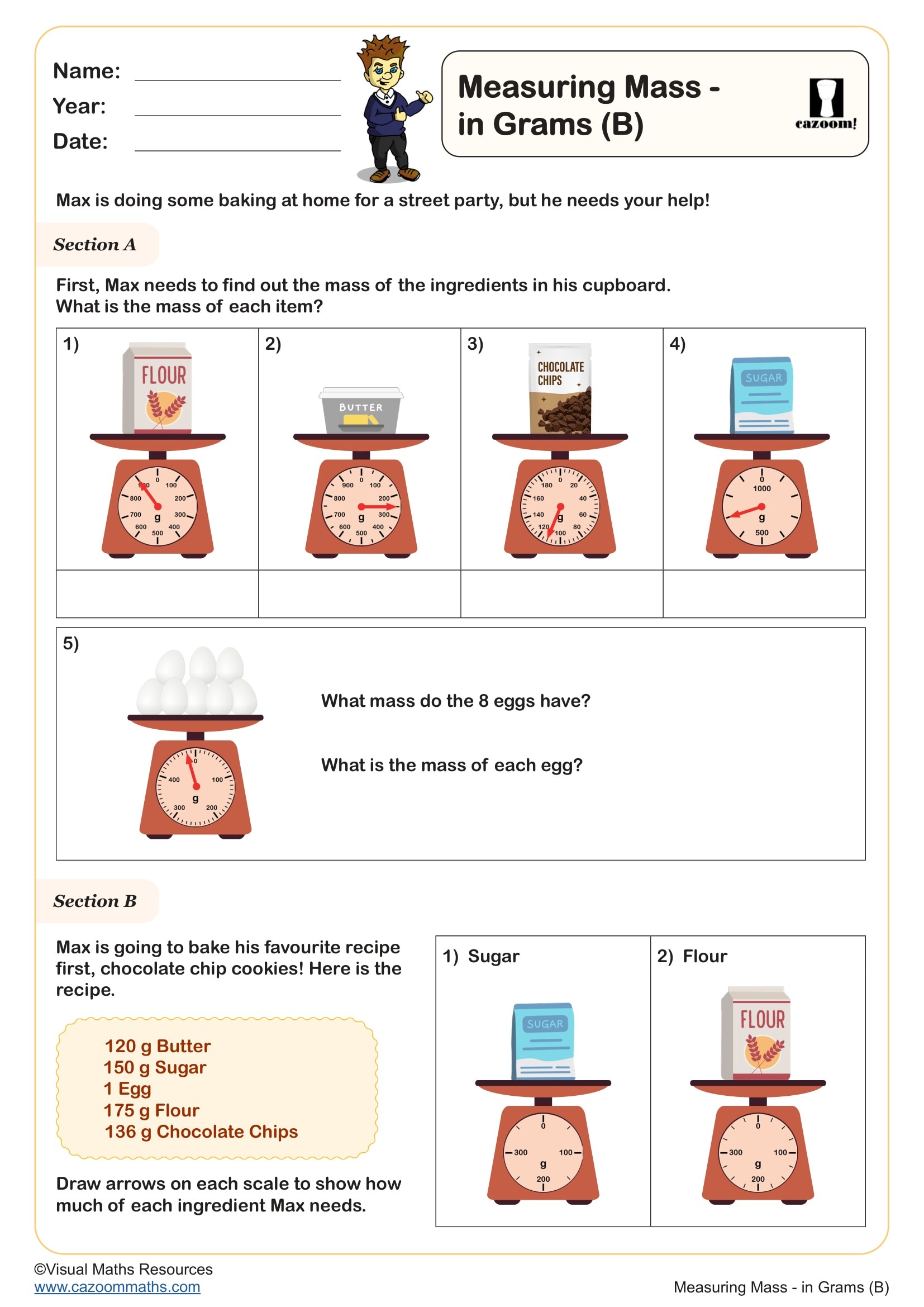
Measure Mass in Kilograms and Grams
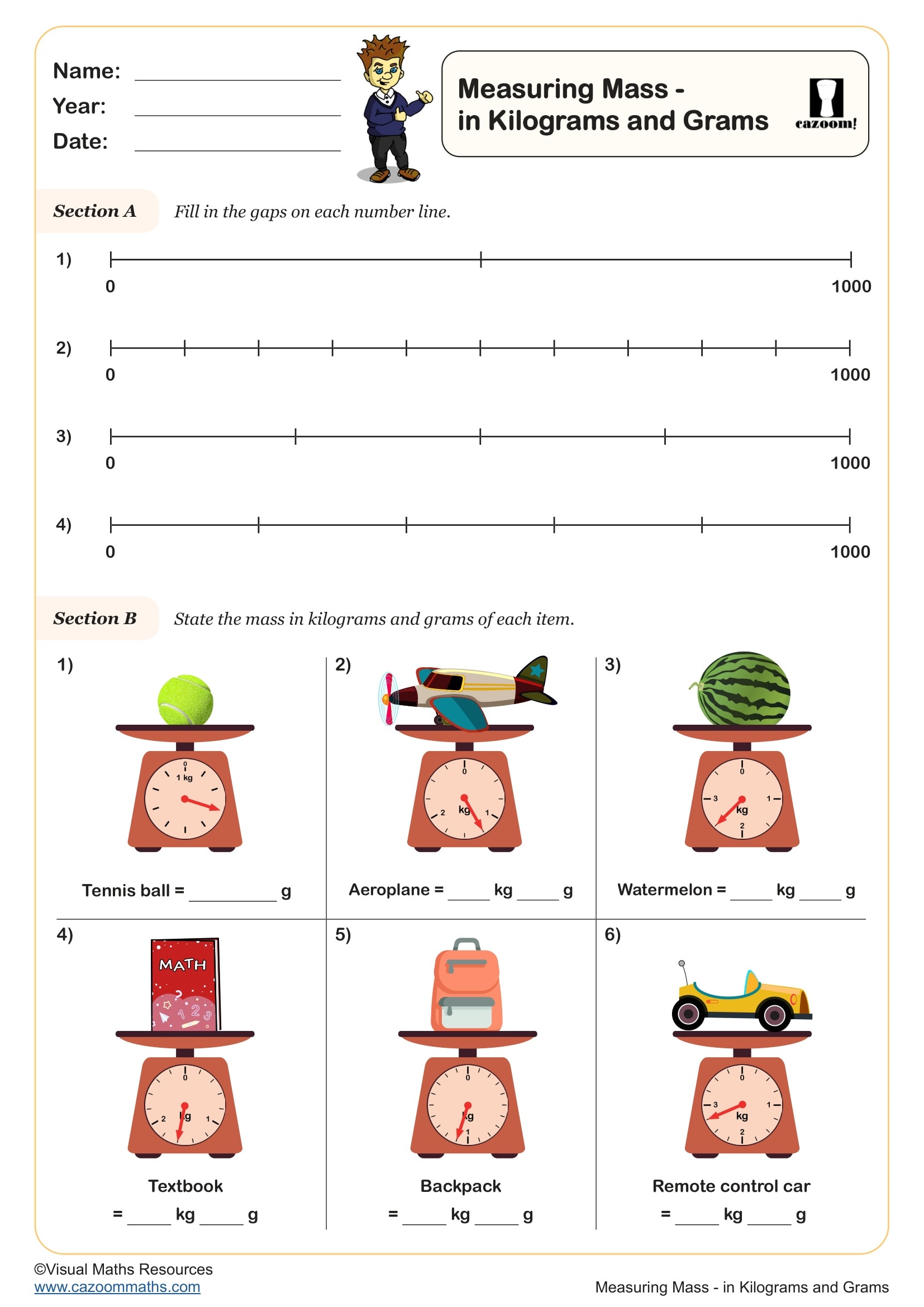
Measure Straight Lines (B)
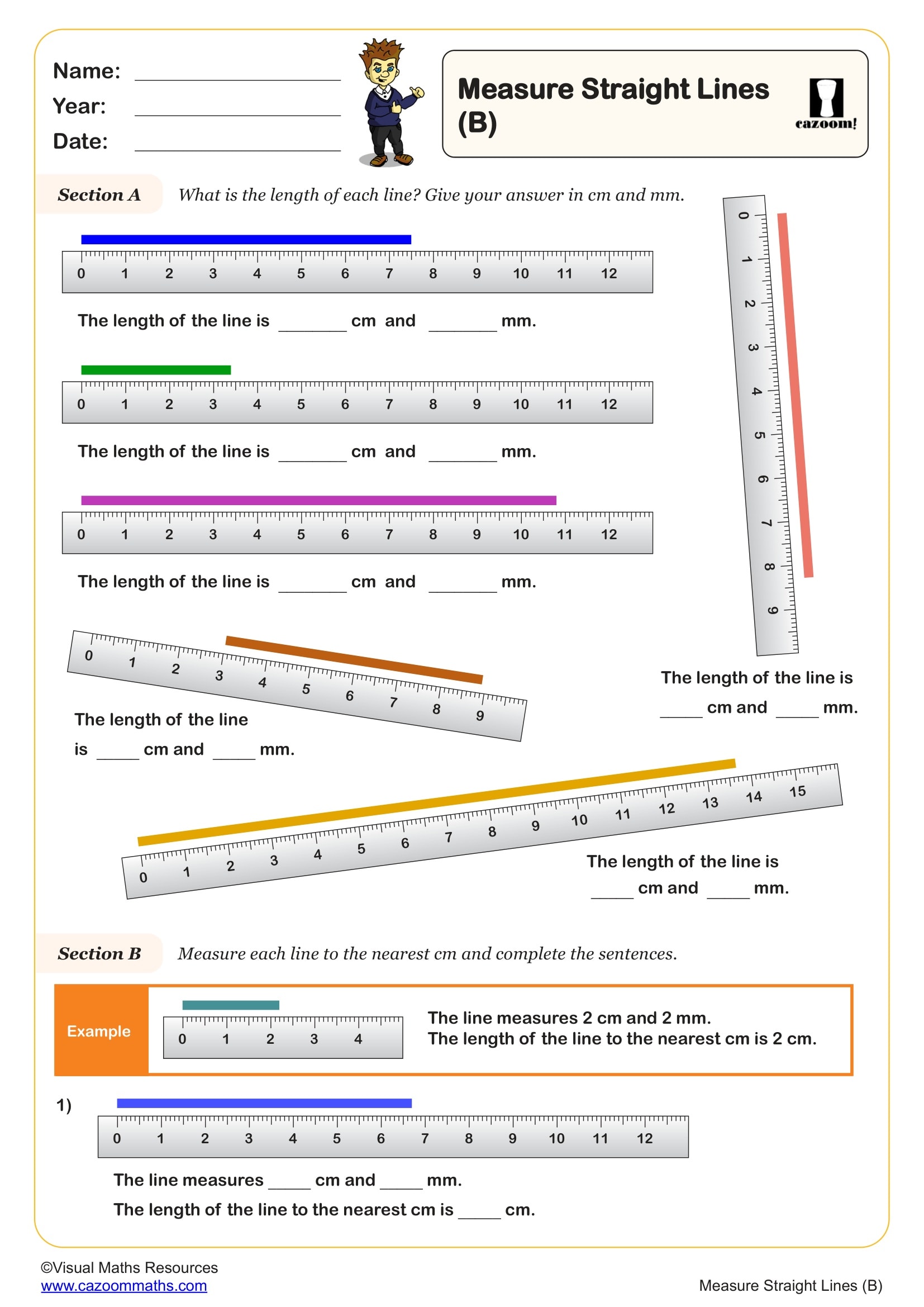
Pounds and Pence to Decimals
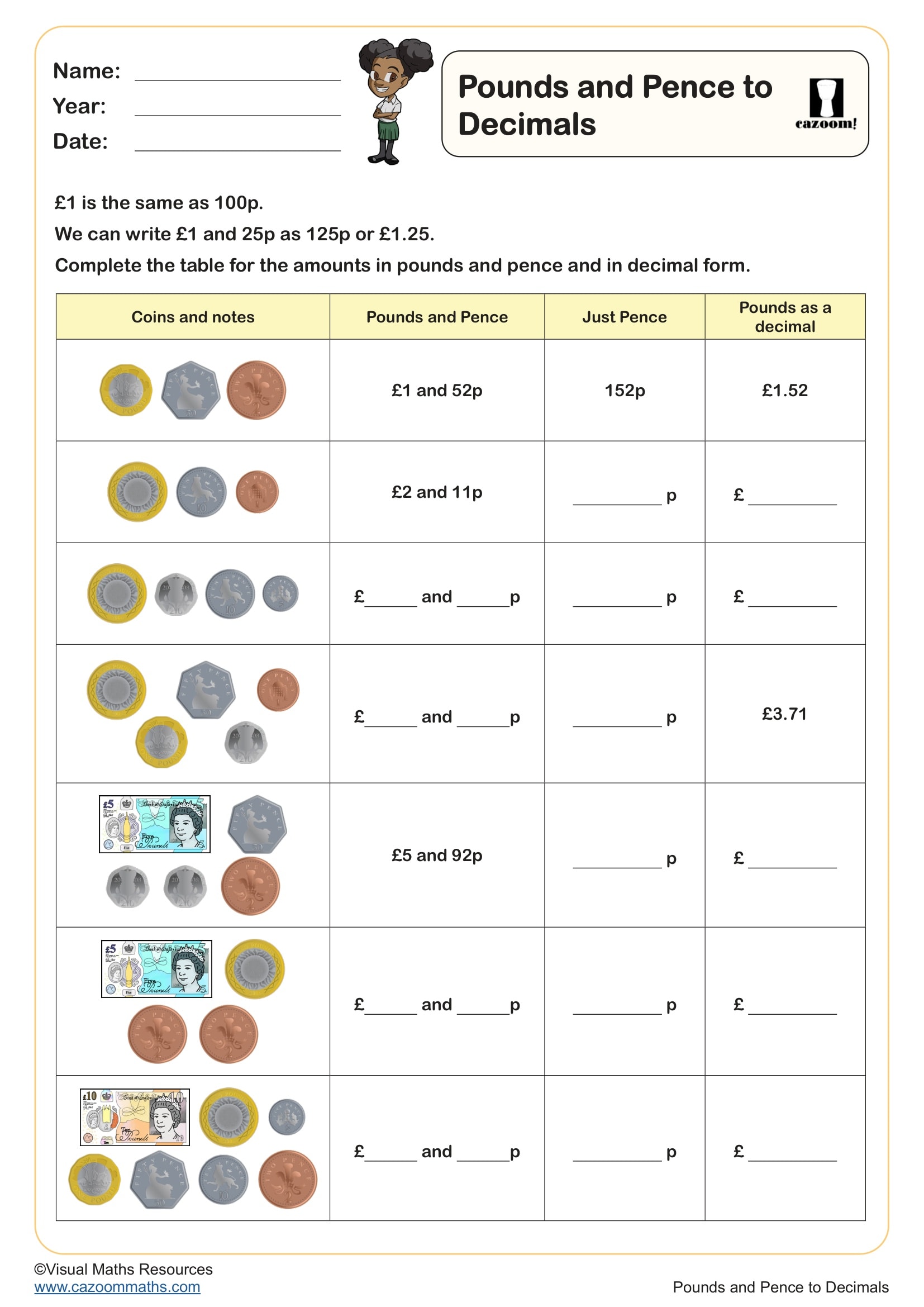
Units of Time (A)
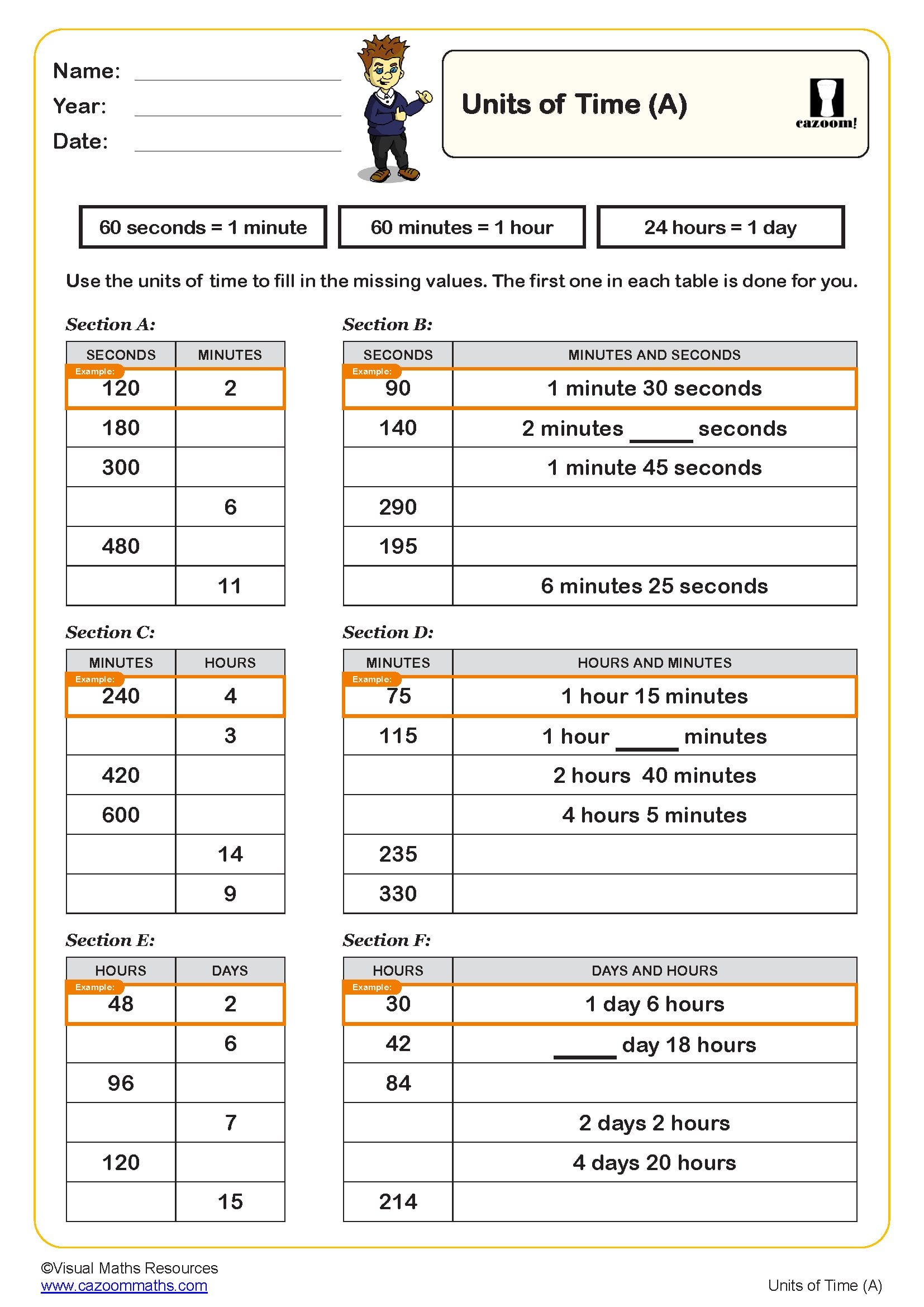
Units of Time (B)
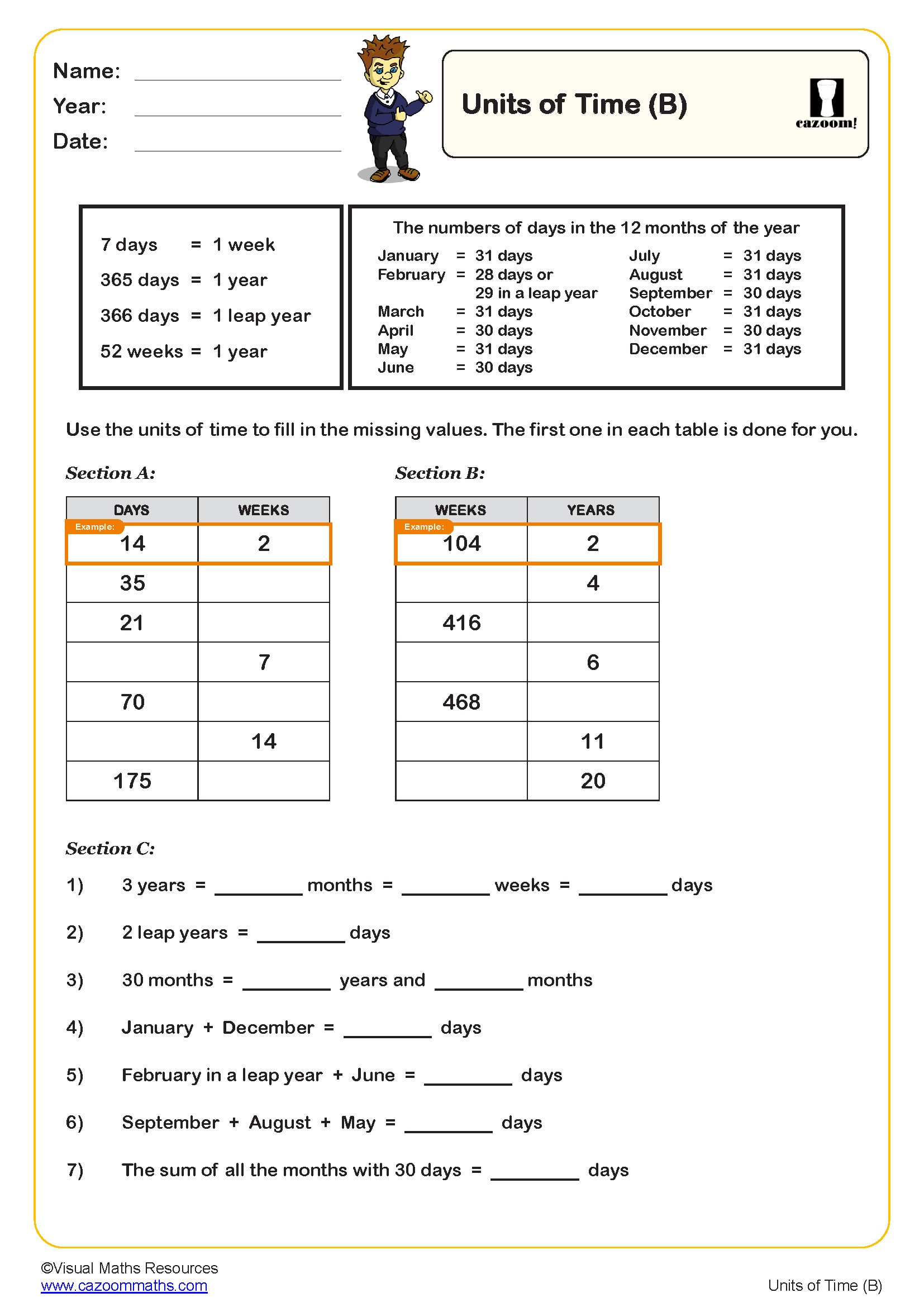
Units of Time (C)
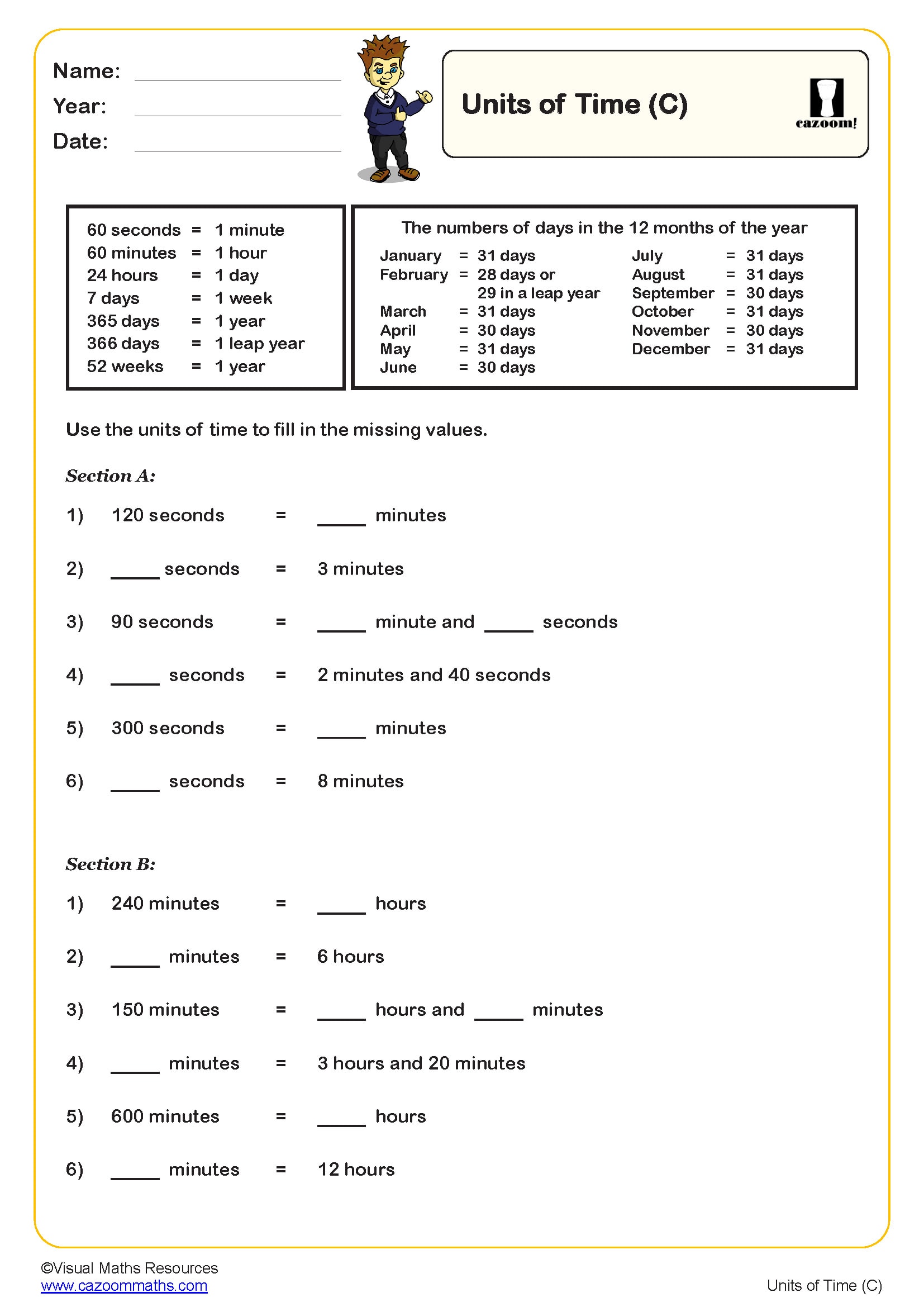
Using a Time Line to Find Durations
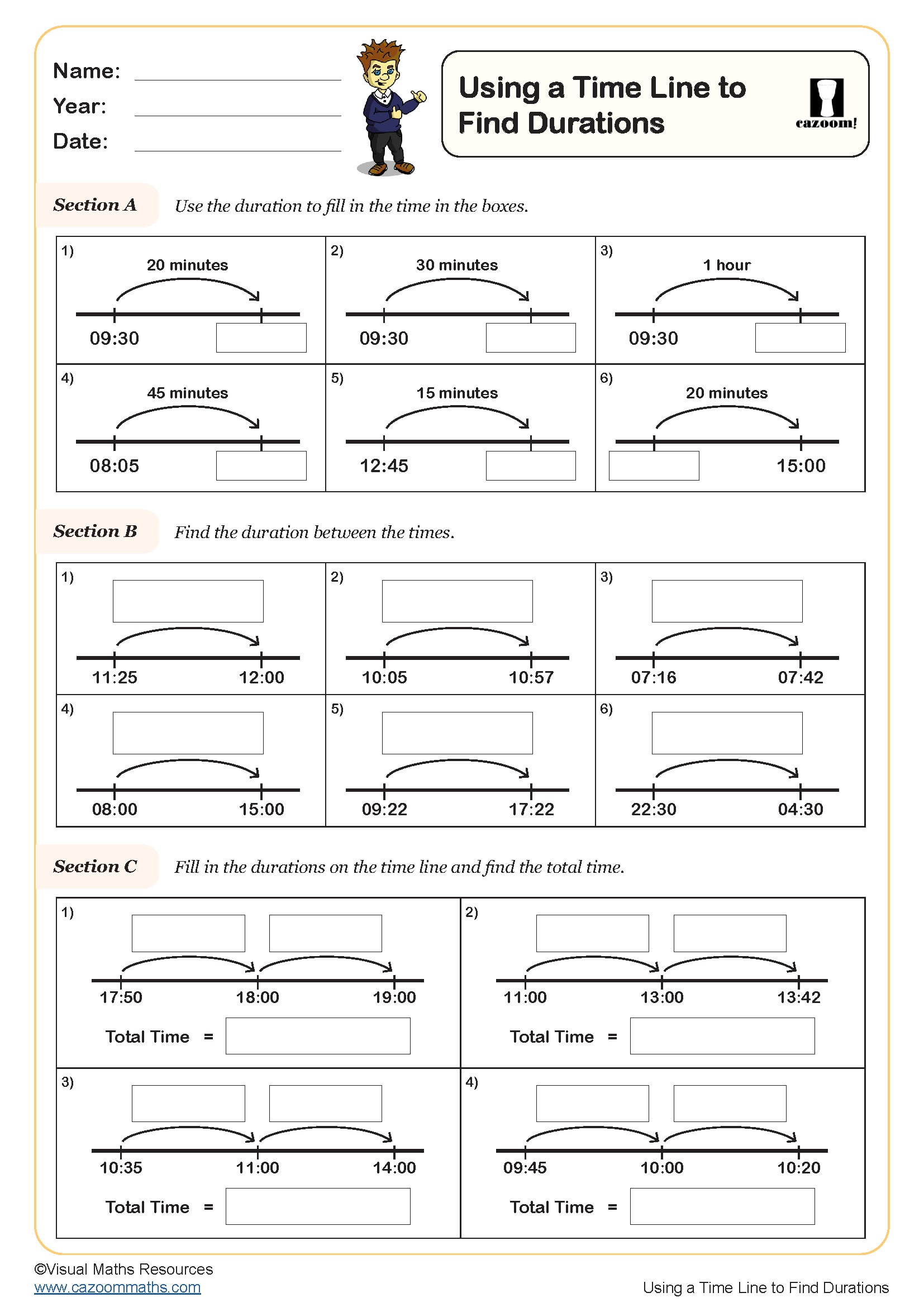
Using Metric Units (A)
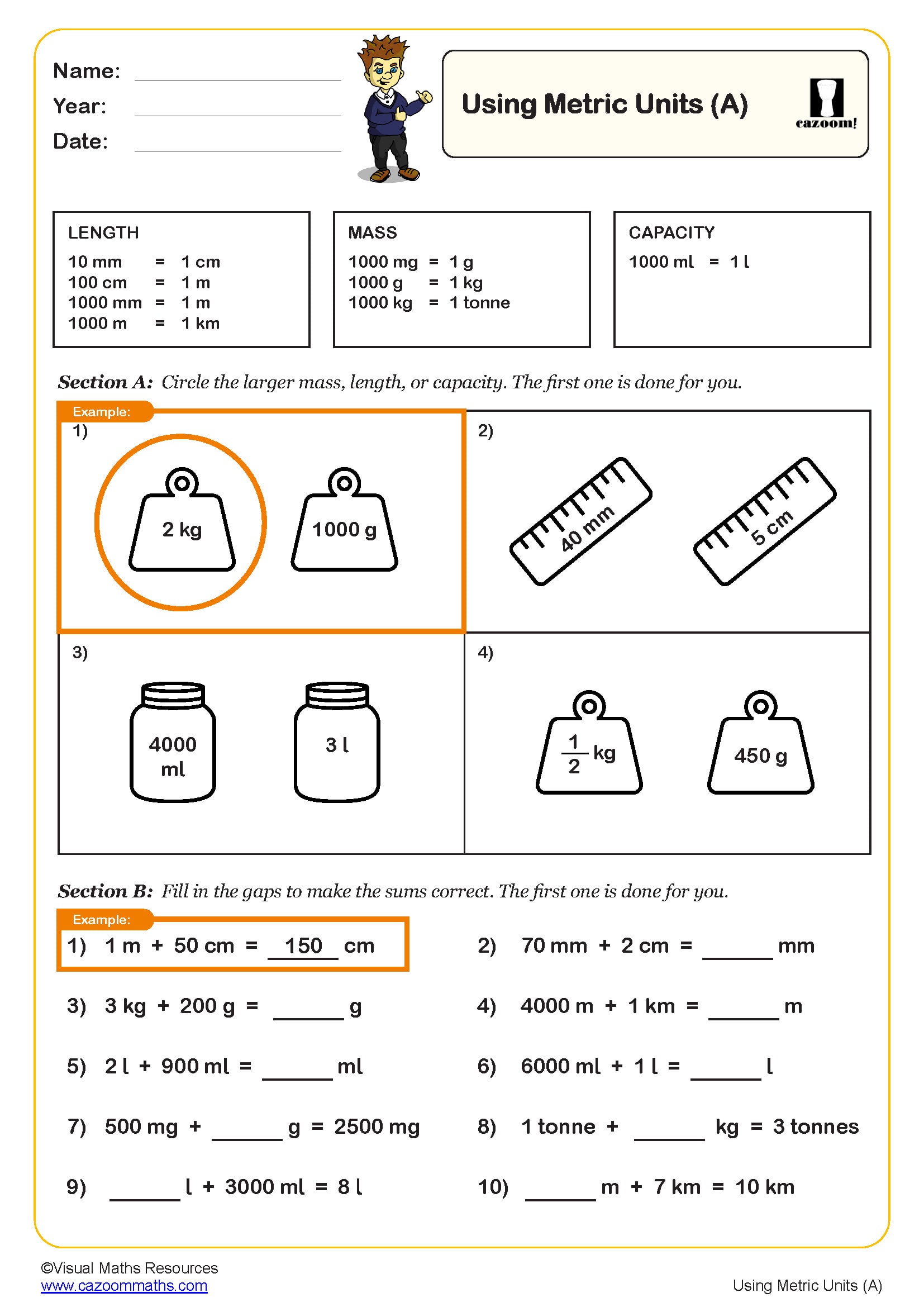
Using Metric Units (B)
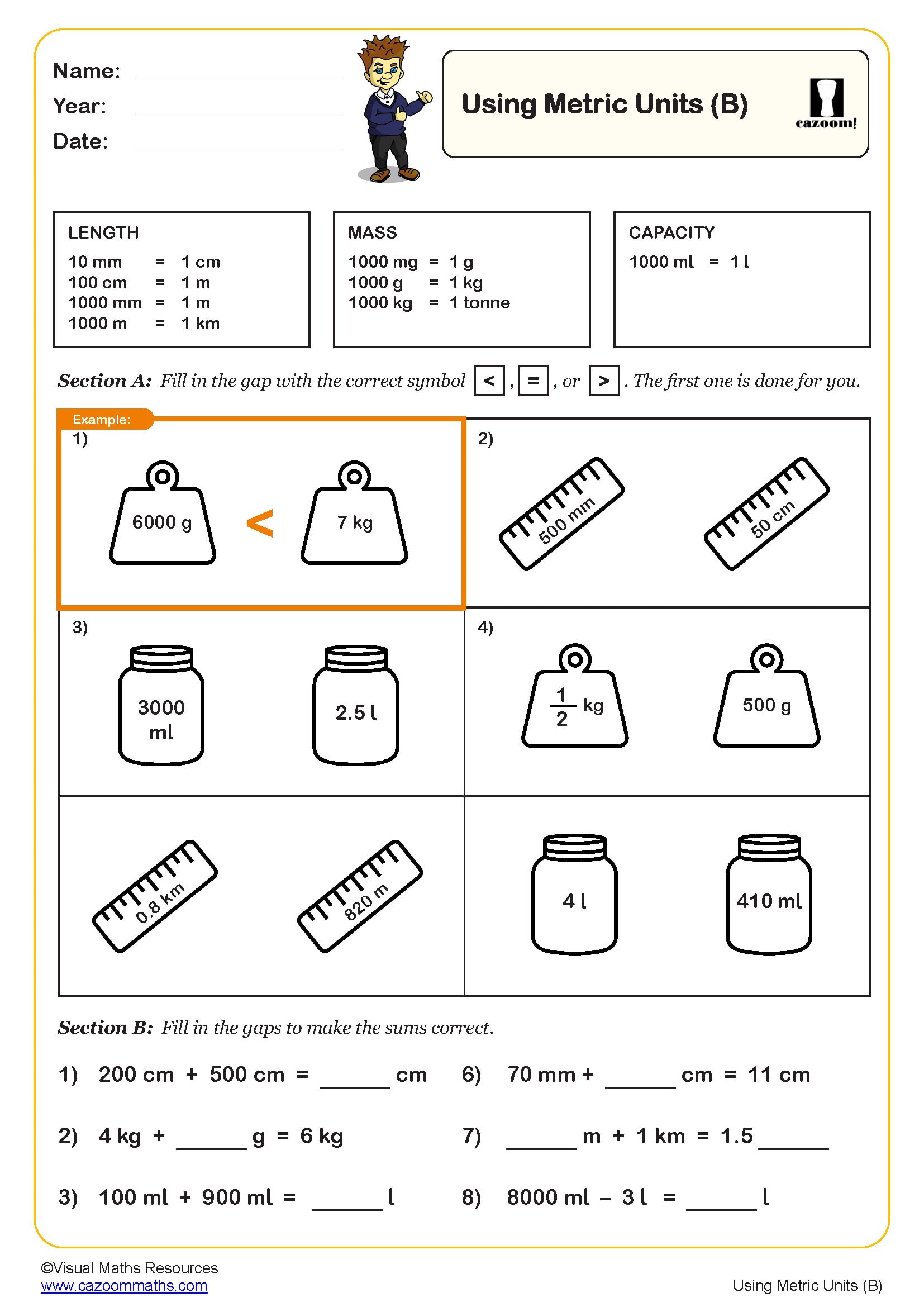
All worksheets are created by the team of experienced teachers at Cazoom Maths.
Complete Year 3 Measurement Worksheets PDF Collection with Step-by-Step Solutions
We have crafted these KS2 measurement resources specifically for Year 3 teachers and parents who need materials that genuinely support the learning progression of their primary school children. Each of our ready-to-use, printable PDF worksheets focuses on core measurement skills—length, weight, capacity, and time—with detailed solutions that show students exactly how to approach each problem step-by-step.
Essential Measurement Skills Covered in Our Year 3 Collection
We've packed quite a lot into these measurement worksheets! Students progress from basic measuring with rulers to comparing different units and solving measurement word problems. The hands-on activities (surprisingly popular with our test classes) include measuring classroom objects, comparing weights, and working with capacity using familiar containers. These worksheets build confidence through structured practice that mirrors real KS2 assessment expectations.
Why KS2 Students Need Targeted Measurement Practice Worksheets
It is evident that the students who get regular, focused practice absolutely outperform those who only encounter measurement occasionally. These worksheets provide the consistent reinforcement that turns measurement from a scary topic into a confident skill set. Perfect for homework, intervention groups, or independent work during maths lessons.
• Builds essential measurement vocabulary students need for KS1 assessments
• Develops practical measuring skills using rulers, scales, and measuring jugs
• Strengthens number sense through real-world measurement contexts
• Prepares students for Year 4 measurement challenges, like reading different scales
• Supports visual learners with clear diagrams and measurement examples
Real-World Connections Where Students Apply Year 3 Measurement Skills
Basic Measurement skills connect directly to science experiments, art projects, cooking activities, and even PE lessons. We've found that students become genuinely excited about measurement when they see how it helps them succeed across different subjects. It's actually quite satisfying when they start measuring things at home!
• Science investigations - measuring plant growth and recording weather data
• Design and technology projects - measuring materials and following recipes
• Art lessons - creating accurate drawings and mixing paint quantities
• PE activities - measuring distances for sports day and recording times
• Home learning - helping with cooking and understanding shopping quantities
• Problem-solving - working out if furniture fits in spaces or comparing prices per weight